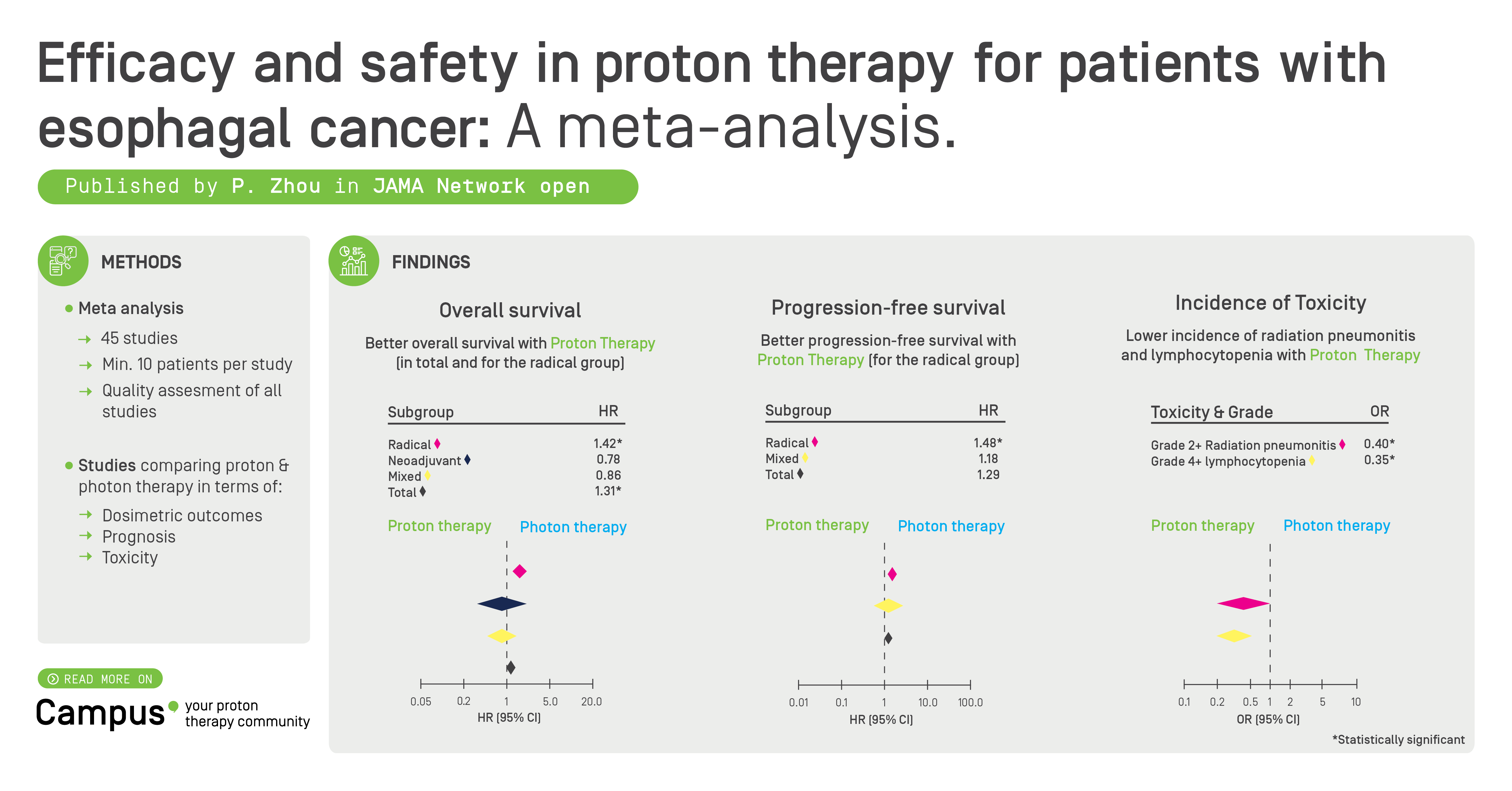Subtitle
Efficacy and Safety in Proton Therapy and Photon Therapy for Patients With Esophageal Cancer: A Meta-Analysis.

Published in JAMA Network, this meta-analysis showed that photon therapy was associated with poor OS, but no difference in PFS observed between photon and proton groups, based on the 45 original studies included for evaluation. Proton therapy was associated with significantly decreased grade ≥2 radiation pneumonitis and pericardial effusion, and grade ≥4 lymphocytopenia. Single-rate analysis of proton therapy found 89% OS and 65% PFS at 1 year, 63% OS and 48% PFS at 3 years, and 56% OS and 42% PFS at 5 years. The incidence of grade ≥2 radiation esophagitis was 50%, grade ≥2 radiation pneumonitis was 2%, grade ≥2 pleural effusion was 4%, grade ≥2 pericardial effusion was 3%, grade ≥3 radiation esophagitis was 8%, and grade ≥4 lymphocytopenia was 17%. The authors concluded that proton therapy was associated with reduced OARs doses and toxic effects and improved prognosis compared with photon therapy for esophageal cancer, but caution is warranted.